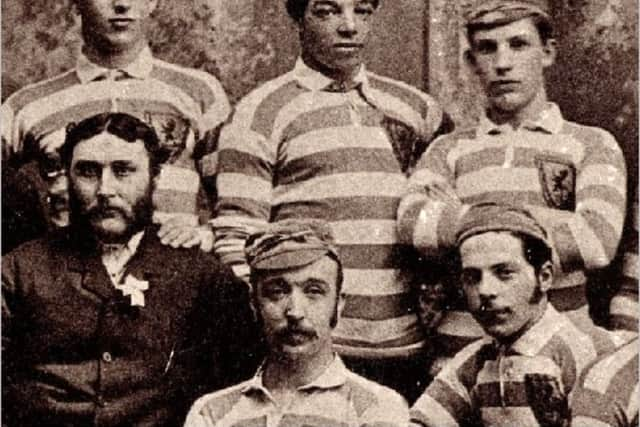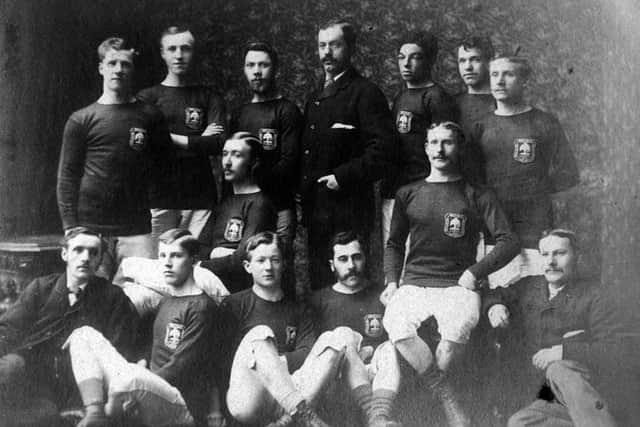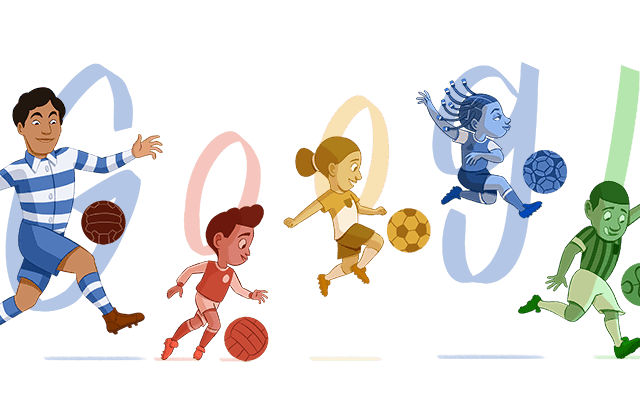Andrew Watson: who was Black footballer, why is he being celebrated by Google Doodle - when was his death?
and live on Freeview channel 276
Today, Tuesday 18 October, the iconic Google Doodle celebrates Andrew Watson, an athlete widely considered to be the first Black international footballer, first Black footballer to captain his country, and the first Black football administrator in history.
Today’s date is significant because it was on this day in 1884 that Watson made his way onto the field for scotland">Scottish football team Queen’s Park in the first game played at the new Hampden Park stadium. This is everything you need to know.
Who was Andrew Watson?
Advertisement
Hide AdAdvertisement
Hide AdWatson was a Scottish footballer who is thought to be the first Black person to have played association football at an international level.
Ged O’Brien, director of the Scottish Football Museum and leading member of the Association of Sports Historians has said: “We believe the findings, dated between the 1870s and 1880s, could prove that the first Black British footballer was Andrew Watson who played for Queens Park (Glasgow) and Scotland.”
Watson was born on 24 May 1856 in what today we know as Guyana, but at the time was British Guiana. His father was a wealthy Scottish sugar planter named Peter Miller Watson, and his mother was a woman named Hannah Rose. He also had an older sister called Annetta.


He moved to the UK with his father and sister when he was five years old, where he was educated at Heath Grammar School in Halifax, West Yorkshire, and later at King’s College School in Wimbledon, London. According to records from King’s College School, Watson excelled at a number of sports, including football.
Advertisement
Hide AdAdvertisement
Hide AdAfter his fathers death in 1869, Watson and his sister inherited a large amount of money that allowed him to be financially independent. The money allowed him to enrol in University of Glasgow when he was 19, where he studied natural philosophy, mathematics and engineering. It was during this time that his passion for football really began to develop.
He left university after one year and instead became a partner in a wholesale warehouse business in Glasgow called Watson, Miller and Baird, and also played football on the side.
Watson later became the chief engineer on the ship the SS Darien for the West Indian and Pacific Steamship Company, a job that would see Watson travel all over the world.
What was his footballing career like?
Watson began his footballing career with Maxwell FC in Glasgow before moving on to Parkgrove in 1874, where he was also their match secretary, making him the first Black administrator in football. During his time with Parkgrove, Watson played alongside another Black player, Robert Walker.
Advertisement
Hide AdAdvertisement
Hide AdIn February 1880, Watson was chosen to represent Glasgow against Sheffield at Bramhall Lane, which they won 1-0. Later that year, in April, he signed up to Queen’s Park, at the time the biggest football team in the UK.
Watson created a reputation for himself as a skilled player as a fullback for Queen’s Park. The Scottish Football Association Annual of 1880-81 described Watson as “one of the very best backs we have” and “since joining Queen’s Park has made rapid strides to the front as a player; has great speed and tackles splendidly; powerful and sure kick; well worthy of a place in any representative team”.


Watson also became Queen’s Park’s secretary, and in 1881 and 1882, he led the team to two consecutive Scottish Cup wins, cementing himself as the first Black player to win a major competition.
He later became the first Black player to play in the English Cup when, in 1882, he moved to London and played for the Swifts. He then became the first foreign player invited to join the English team the Corinthians in 1883. He played for other amateur teams in England including Pilgrims, Brentwood and London Caledonians.
Advertisement
Hide AdAdvertisement
Hide AdAcross his footballing career, Watson bagged three international caps for Scotland, and in 1886, he played his last game for Queen’s Park.
Was he married - did he have children?
Throughout his life, Watson married twice - first in November 1877 to a woman named Jessie Nimmo Armour. He and Armour had two children together, their son, Rupert, born in 1878, and daughter Agnes in 1880.
Armour passed away in the latter end of 1882, and, following her death, their children moved back to Glasgow to live with their grandparents.
He married again in February 1887, to Eliza Kate Tyler, with whom he also had two children - son Henry, born in 1888, and daughter Phyllis in 1891.
When did he die?
Advertisement
Hide AdAdvertisement
Hide AdAround 1910, Watson retired to London and he passed away on 8 March 1921 of pneumonia at the age of 64. He died at 88 Forest Road in Kew.
Watson is buried in Richmond Cemetery, with his grave available to the public to visit.
What’s the Google Doodle?
The doodle features Watson in his blue and white striped football uniform and brown boots with a football, looking on at the future of Black football legends still to come.


When asked if there was a message he hoped people would take away from the doodle, artist Selom Sunu said: “I hope people will be inspired to have a go at football or any other sport regardless of their age as it can be a great way to make friends, have fun, and stay active. I also hope people will be inspired to do the best they can with the skills they develop.
Advertisement
Hide AdAdvertisement
Hide Ad“You never know who else might be inspired by what you do, even if it’s ordinary to you. I imagine Andrew Watson was just living his life the best he could, not knowing how great an impact he would have on others.”
Comment Guidelines
National World encourages reader discussion on our stories. User feedback, insights and back-and-forth exchanges add a rich layer of context to reporting. Please review our Community Guidelines before commenting.
